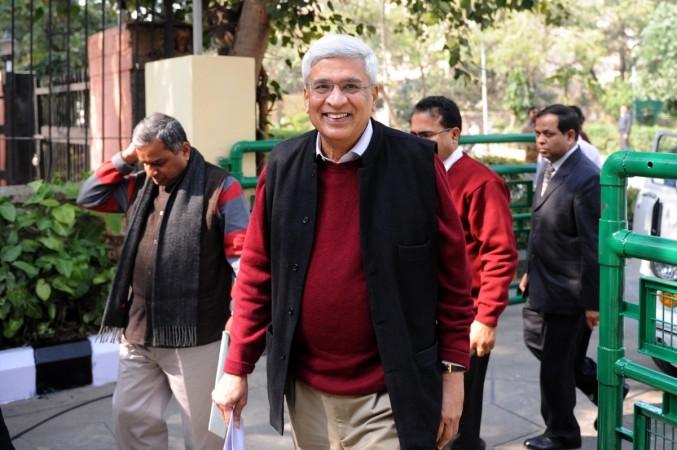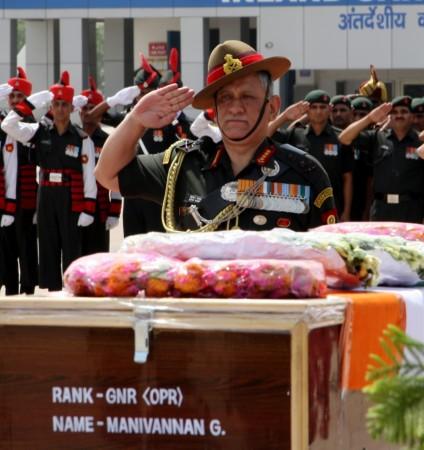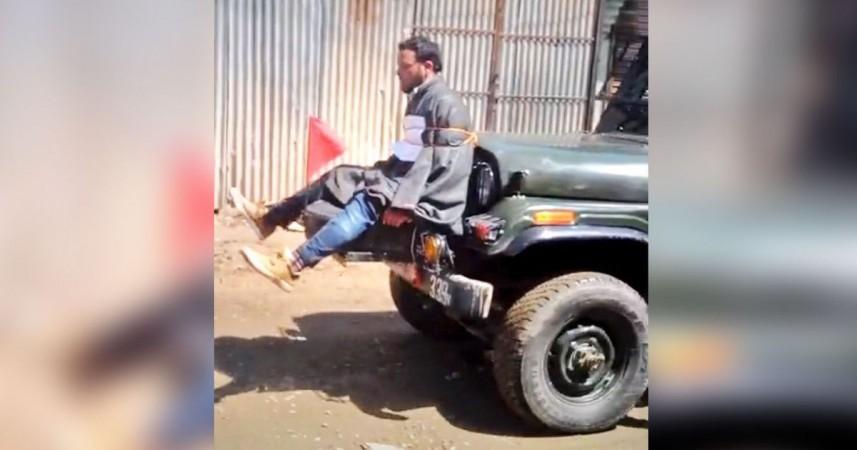
Prakash Karat, former CPI(M) general secretary, courted controversy when he said that Army Chief Bipin Rawat was "reflecting the views of the Narendra Modi government" when it came to dealing with the Kashmir issue. He added that both sides — the people of Kashmir as well as the Indian Army — would "suffer irreparable damage due to the government's blind adherence to the use of coercive force against the civilian population."
Also Read: Venkaiah Naidu endorses Gen Bipin Rawat's remarks: Why are we making our army a political pawn?
In an editorial in CPM's mouthpiece 'People's Democracy', Karat — who is also the editor of the newspaper — wrote: "Unfortunately, the army chief is reflecting the views of the Modi government which seeks to suppress the people of Kashmir... through the sole reliance on use of force. Not only will the people of Kashmir but the army itself will suffer irreparable damage due to the government's blind adherence to the use of coercive force against the civilian population."
Karat, in his editorial, also criticised Rawat for supporting Major Leetul Gogoi, who tied a Kashmiri civilian to an army jeep to prevent locals from pelting stones at soldiers. The CPI(M) leader said that the army chief had let down the "high professional standards of the army" by backing Gogoi.

Rawat had defended the 'human shield' incident that took place in Srinagar during the bypolls saying the Indian troops need innovative ways to fight the "dirty war" going on in the Kashmir Valley. He said he cannot ask his men to "just wait and die" if locals pelt them with stones.
"People are throwing stones,... petrol bombs at us. If my men ask me what do we do, should I say, 'just wait and die? I will come with a nice coffin with a national flag and I will send your bodies home with honour'. Is it what I am supposed to tell them as chief? I have to maintain the morale of my troops who are operating there," Rawat had told PTI in an exclusive interview.
He had also said it would be easier for the army to deal with the protesters if they fired weapons instead of resorting to stone pelting. "Then I could do what I (want to do)," the army chief had said.
"Gen. Rawat makes no distinction between young protestors throwing stones and armed militants... To taunt protestors to take up arms, so that the army could deal with them appropriately is a needless provocation and displays an attitude which is unbecoming of a senior army officer," Karat wrote.

The video of the Kashmiri man Farooq Dar being used a human shield by the Indian Army went viral on social media last month triggering severe criticism from human rights activists, retired army generals and Kashmiri groups.
Bengali scholar compares army chief to British General Reginald Dyer
Earlier, Bengali scholar Partha Chatterjee had also criticised Rawat over the incident and compared him to British General Reginald Dyer, who is famous for having organised the Jallianwala Bagh massacre on April 13, 1919, that killed over 1,000 people.
"There are chilling similarities between the justifications advanced for the actions of the British Indian Army in Punjab in 1919 and those being offered today in defense of the acts of the Indian Army in Kashmir," Chatterjee wrote in his article titled "In Kashmir, India Is Witnessing Its General Dyer Moment".
The scholar defended his views saying that "I stand by what I wrote... I have nothing to say. I have written what I have written. I am not changing anything at all," ANI reported.














